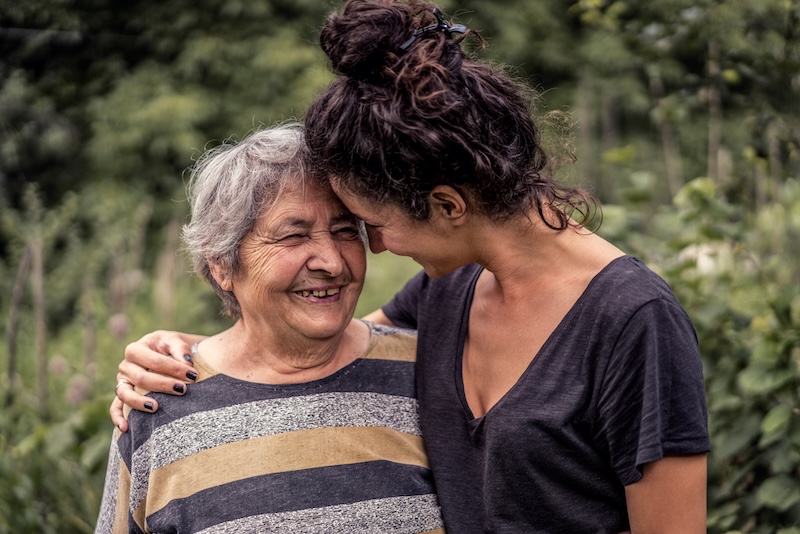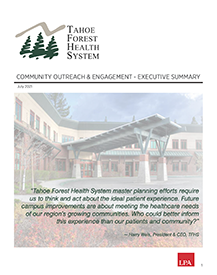The Silent Struggle: Caregiver Stress and the Need for Support

Caring for a loved one with a chronic illness can be one of life’s most compassionate roles. However, for many caregivers, this commitment often comes with an invisible toll: stress that affects their health, well-being, and quality of life.
A Growing Concern
Caregiver stress is a widespread but often under-recognized issue. It can show up as chronic fatigue, anxiety, depression, or as physical symptoms like headaches, high blood pressure, and a weakened immune system. Over time, these effects may lead to burnout—a state of emotional and physical exhaustion that compromises both the caregiver and the care recipient.
Many caregivers also experience guilt or isolation, especially when their own needs are put on the back burner for long periods of time. “People don’t always see the wear and tear on caregivers,” says Tahoe Forest Health System dementia care coordinator Jackie Griffin, RN. “But it’s real, and it deserves attention.”
Why Support Matters
While caregiving is rewarding, it’s not sustainable without support. Experts say caregivers benefit significantly from resources that address both emotional and practical challenges.
Emotional support can come in the form of peer groups or mental health counseling, while practical support might include training in stress management, time management, and self-care. When caregivers receive this kind of assistance, their overall health improves, and their ability to care for others strengthens.
Caregiver Tips for Staying Resilient
To support your well-being while caring for others, consider these tips:
- Ask for help early and often – Don’t wait until you’re burned out. Reach out to family, friends, or professional services for assistance.
- Prioritize self-care – Schedule time for activities that recharge you: walking, reading, connecting with friends, or simply resting.
- Stay connected – Join a caregiver support group, either in person or online, to share experiences and reduce feelings of isolation.
- Learn about the condition – Understanding what your loved one is going through can help you manage their care with more confidence.
- Set realistic expectations – You can’t do it all, and that’s okay. Be kind to yourself and celebrate small wins.
- Use respite services – Temporary relief from caregiving responsibilities can help you recharge and avoid burnout.
- Focus on communication – Practice open, honest communication with your loved one and healthcare providers to reduce misunderstandings and stress.
- Know your limits – Pay attention to signs of stress and overwhelm. Your health matters just as much as the health of your loved one.
- Find a caregiver support program – Support programs can be a turning point for caregivers who are feeling stretched thin. Tahoe Forest Wellness offers Building Better Caregivers®, an evidence-based, six-week workshop designed to provide skills, strategies, and peer connection to help caregivers manage stress, navigate difficult emotions, and prioritize their own health.
The next Building Better Caregivers® session, facilitated by Jackie Griffin, RN, and Elizabeth Schenk, NBC-HWC, begins on Thursday, May 15, at 3 p.m. Sessions are held virtually, allowing caregivers to participate from the comfort of their homes.
To register or learn more, call Tahoe Forest Wellness at (530) 587-3769.
By Elizabeth Schenk, BS, MBA, NBC-HWC
- * Featured
- Anniversary
- Board of Directors
- CA Office of the Governor
- Children's Health
- COVID-19
- Employee Highlights
- Gene Upshaw Memorial Tahoe Forest Cancer Center
- Health & Wellness
- Health System Foundation - Giving
- Incline Village Community Hospital
- Informational Brochures & Guides
- Nevada County Public Health
- Orthopedics
- Patient Success Stories
- Stay Healthy: Facts About COVID-19
- Tahoe Forest Health System
- Women's Health




